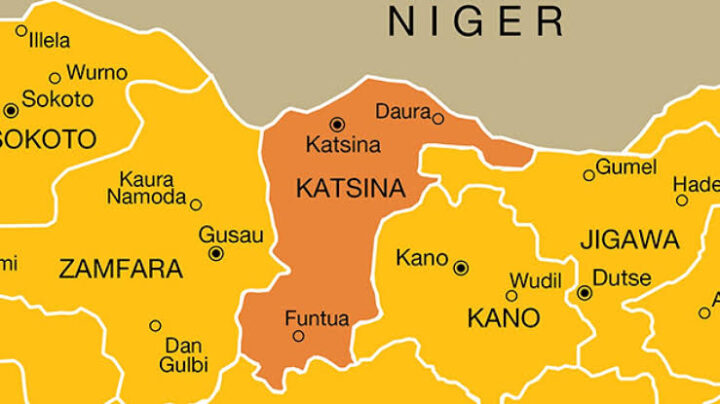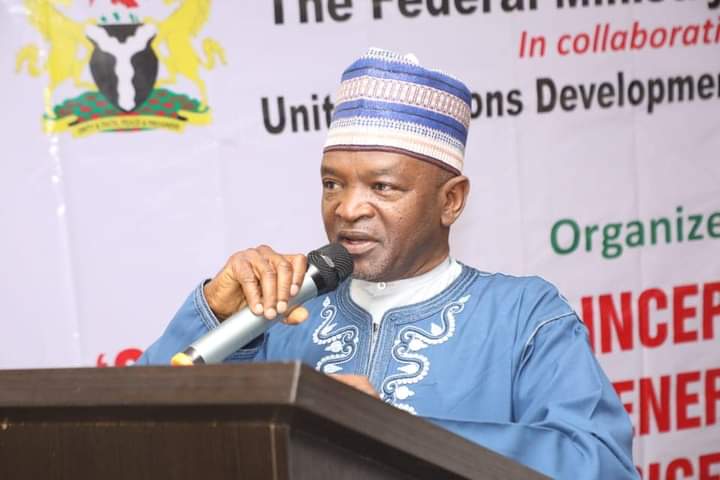Royal Dutch Shell will continue to run Shell Nigeria Exploration and Production Company (SNEPCo) despite moves to divest from its shallow water and onshore oil assets in Nigeria.
SNEPCo, Shell’s 100 percent business, pioneered the deepwater oil and gas production from the Bonga field in the Gulf of Guinea, where depths reach more than 1,000 metres.
Ten days ago, the company appointed Elohor Aiboni as its first female managing director in the more than six decades of its operations in Nigeria.
In a report seen by TheCable, the Wood Mackenzie group, an analytical and consulting firm, analysed the company’s deepwater business in Nigeria and the valuation of its assets ahead of the final closure of divestment moves.
Advertisement
The report said Shell is preparing for a new era in Nigeria with a much smaller, advantaged portfolio after “decades of dominance,” citing the energy company’s SNEPCo, which is centred on OML 118.
“Its deepwater business run by SNEPCo is centred on OML 118. That’s been hugely successful since Bonga came onstream in 2005. Deepwater Nigeria offers economic advantage through the scale and quality of the reservoirs and resources; as well as lower emissions intensity through a single production hub,” the report reads.
“A new negotiated set of fiscal terms similar to the original vintage will enable fresh investment. And, of course, it is removed from the risks of the onshore delta.
Advertisement
“Production from OML 118 will grow later in the decade driven by new wells on Bonga North, and eventually the long-awaited Bonga SW, although FID there will be next year at best.”
The document also showed Shell’s plan to divest all of its operated joint venture (JV) licences held by the Shell Petroleum Development Company (SPDC). The licences include a 30 percent interest in 19 Oil Mining Leases (OMLs).
It further stated that expressions of interest (EoI) for the acquisition of Shell’s stake in the OMLs are due by September 10.
“Rather than sell single OMLs, Shell is seeking buyers for asset packages in the eastern, western and shallow water delta,” the document further reads.
Advertisement
“Before all that though, Shell must negotiate with NNPC (holder of 55% in the JV assets), on the terms of a sale. This could cover NNPC’s pre-emption rights, treatment of outstanding JV liabilities including decommissioning, the fate of the JV’s terminals, transfer of staff, and host community approval.
“Shell’s priority is identifying credible buyers and ensuring deal completion. It wants to limit negotiations to hand-picked bidders only, thus avoiding a long drawn-out process. But it needs NNPC’s buy-in.”
SHELL MAY MAINTAIN INDIRECT INTEREST IN OMLS
The report noted that not many buyers want high-cost, emissions-intensive assets in the Niger Delta.
Advertisement
But it added that Nigerian independents and new entrants were eager to acquire under-invested assets with plenty of volume upside.
“Shell itself may provide finance to help smooth deals. It may even maintain an indirect interest in the OMLs, perhaps within a special purpose vehicle, coupled with a clear exit strategy,” the document reads.
Advertisement
“This would get assets off the balance sheet and provide more comfort to lenders. Contingent payments might also feature. Innovative solutions will be needed.
“A complete sell-off would be historic. However, all 19 OMLs will be extremely hard to shift in the current environment. Expressions of interest are due by 10 September.”
Advertisement
SHELL’S JV PORTFOLIO WORTH ‘$2.3 BILLION’
The analytical and research consulting group added that Shell’s JV assets in Nigeria are valued at $2.3 billion.
Advertisement
“There could be as much as 4 billion boe (30% net) across the JV. However, we consider only 20% to be commercial due to a lack of investment, crude theft, insecurity and gas market constraints. Five of the OMLs are undeveloped.
“Our valuation of Shell’s 30% in the JV (excluding export pipelines and terminals) is US$2.3 billion, (NPV10, Jan 2021, US$50 long-term oil price). But this is based on the current sub-optimal, business-as-usual investment profile.
“A competent buyer/operator, giving priority to the assets, could commercialise much more than 20% of the resource base, although the availability of funding for the JV partners will, as ever, dictate how much.
“The recently passed PIB overhauls the fiscal regime offering materially lower oil royalties and taxes. Hence, there is much more upside than downside to our base case, which bidders will need to carefully quantify.”
In May, Royal Dutch Shell had said it was involved in discussions with the federal government to sell its onshore oil assets in Nigeria.
Ben van Beurden, chief executive officer of Shell, said the oil giant can no longer be exposed to the risk of theft and sabotage in the Niger Delta.
On Wednesday, the Shell Petroleum Development Company (SPDC) agreed to pay the N45.9 billion awarded to the Ogoni people of Rivers state as compensation for oil spills in their communities — 11 years after a court judgement.
In January, a Dutch court also ruled that the company pay for damages caused by oil spills in the Niger Delta region. Four farmers had sued Shell for oil spills that they say caused widespread pollution of the land.
1 comments







The exit of Shell from on shore and shalow waters in the oil industry is a big blow to Nigeria. Although Shell has it’s own share of the blames arising from oil spills, the government and people of Nigeria have failed woefully in tackling sabotage and illegal tampering with oil pipelines that has resulted in majority of these spills. Corruption among Nigerian employees also contributed to multiplicity of problems experienced by Shell.